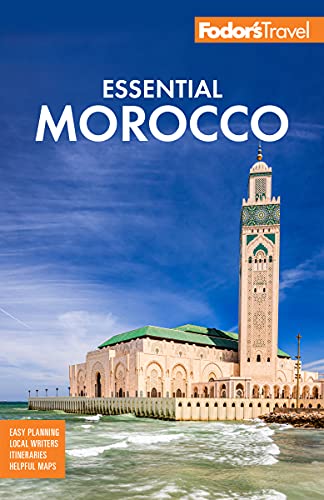Trekking in the Atlas
There are few better antidotes to the marvelous mayhem that is Marrakesh than the clear air and amazing vistas offered by the High Atlas Mountains. From gentle strolls through unspoiled Berber villages to full-blown, weeklong mountain treks, outfitters can cater to all levels of experience and budget.
Most travelers to the High Atlas associate it with one thing: Djebel Toubkal, North Africa’s highest peak, scraping the clouds at 13,671 feet. It is indeed a magnificent sight, and for most of the year it's a relatively easy climb; from late April to early October a strong pair of legs (and boots) will suffice. As the focal point of the range, Djebel Toubkal is very popular in high season, but over its 600-plus-mile length, the High Atlas has over 400 peaks that exceed 10,000 feet, so there are plenty of alternatives. In typical Moroccan style, flexibility is the name of the game. Pretty much any type or length of trek can be organized, from a half-day excursion to lengthy expeditions involving mules and guides. Your level of fitness will determine which you choose.
Safety Advice
Never walk alone. Always tell someone where you are going, and when you hope to return. Take suitable quantities of food; warm, lightweight clothing; a hat and sunscreen; and a first-aid kit and water-purifying tablets (not bottled water). Most important, wear comfortable boots. Litter and general pollution are a growing problem, so please leave no traces of your visit.
It is generally agreed that the launch point for any foray into the High Atlas is the largest Berber village in the region, Imlil (although it's still quite small). Here, accommodations are both plentiful and cheap, though they can feel a little faded (but they all come with that priceless Berber hospitality).
In the shadow of Djebel Toubkal, Imlil is unprepossessing but has a purposeful bustle, offering all that is necessary for a trek. Everything is for hire: boots (though bring your own if possible), jackets, sleeping bags, crampons, and even a mule, which can carry the loads of four people, including children, over most terrain.
Guides
Detailed maps of the region are scarce (and those that exist don't list many of the small villages and passes), but with a guide you shouldn’t need one. Imlil is bursting with people willing to lead an expedition. Official guides can be found at the Bureau des Guides et des Accompagnateurs à Imlil, in the main square, or you can ask for a recommendation from your hotel or guesthouse. Official mountain guides undergo rigorous training and take exams within the French mountaineering system. In terms of cost, expect to pay 400 DH to 600 DH per day for a guide, plus more for food and accommodations. If a guide is arranging a trek for you, they will also arrange the food and accommodations; just be sure to agree on the price beforehand. Mules come in at a very reasonable 150 DH along with their mule driver. It's also expected for you to tip your guide; a standard tip is 100 DH per day for the guide and cook, and 50 DH per person per day for the mule and regular driver.
Trekking Routes
The choice of route will depend upon your level of experience, the season, the length of time, and your budget. The obvious option is to attack Djebel Toubkal—you can be up and down in two days. Head south from Imlil past Sidi Chamarouch and make the easy ascent. Overnight on the mountain in one of two refuges (minimalist lodgings that offer accommodations, showers, food, and hot drinks) at the base of the mountain.
Those with more time and stamina may opt for a circular route, east from Imlil. Over five days, you might visit Tacchedirt, Tizi Likemt (at an impressive 11,663 feet), spend the second night at Azib Lkemt, and the third in Amsouzerte. To the west, Lac d’Ifni (a serene mineral-rich lake) awaits, then back to the one of the refuges before descending to Imlil. Another popular circular route goes up through Tizi Mizk, via Azeeb Tamsoult.




